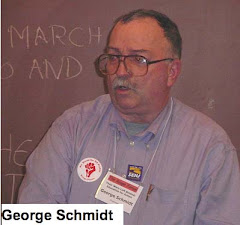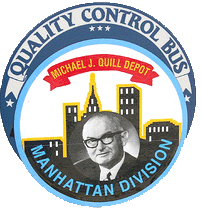Herbert Hill (January 24, 1924 – August 15, 2004) was the labor director of the National Association for the Advancement of Colored People for decades and was a frequent contributor to New Politics (magazine) as well as the author of several books. He was later Evjue-Bascom Professor of Afro-American Studies and Industrial Relations at the University of Wisconsin–Madison and eventually emeritus professor. He played a significant role in the civil rights movement in pressuring labor unions to desegregate and to seriously implement measures that would integrate African Americans in the labor market. He was also famous for his belief that American trade unions had downplayed the history of racism that tarred their reputations, before and after the Jim Crow era.
Hill earned a B.A. from New York University in 1945 and attended the New School for Social Research from 1946 until 1948 where he studied under the distinguished political theorist, Hannah Arendt. During the 1940s, Hill was a member of the Socialist Workers Party. Hill (although white) was appointed Labor Director of the NAACP in 1951 where he worked until 1977 when he departed for a professorship at the University of Wisconsin–Madison. He was highly critical of the practice of nepotism in many unions whereby relatives of members were hired. Hill criticized labour relations practises in numerous industries including the film industry as well as the progress of the Kennedy Administration on issues of racial equality in the workplace. Among the many unions he criticized for their record on racial equality were the International Ladies Garment Workers Union, the United Auto Workers, the United Federation of Teachers and the United Steelworkers of America as well as the AFL-CIO federation itself. Hill particularly objected to the AFL-CIO position that Title VII of the 1964 Civil Rights Act should not interfere with existing seniority systems. He was also a strong supporter of affirmative action. According to a New Politics article by Stephen Steinberg, Supreme Court Justice Thurgood Marshall once described Hill as "the best barbershop lawyer in the United States".
He also organized pickets to raise awareness of racial discrimination in the construction industry. His conduct was so controversial that some unions threatened to withhold funding of the NAACP unless Hill was fired, but the NAACP leadership under Roy Wilkins supported Hill. Hill published over one hundred articles in journals, anthologies and newspapers and was also known for debates with labor historian Herbert Gutman as well as debates in New Politics (magazine) with union leader Al Shanker and Nelson Lichtenstein, an academic and biographer of Walter Reuther. Hill was especially sharp against Lichtenstein's support for the allegedly racist Reuther and the UAW's activities to betray the civil rights movement. He also served as a consultant for the Equal Employment Opportunity Commission and the United Nations.
One of the most important campaigns led by Hill was his campaign against the discriminatory practices of the ILGWU. Despite the fact that the ILGWU had cooperated with the NAACP with respect to desegregation of union locals in the South, as late as the early 1960s, there were still no African-American nor Puerto Rican officers or executive board members in the ILGWU in its New York City base. The ILGWU was of particular importance because of its major role in the Liberal Party of New York. Hill played a key role in taking on a complaint against Local 10 of the ILGWU of an African American cutter, Ernest Holmes, who had been repeatedly prevented from joining the cutters' union, thereby receiving lower wages and denied the health and welfare benefits associated with union membership. Hill alleged that the ILGWU restricted African American and Puerto Rican workers to low paying jobs. In 1962, the New York State Commission for Human Rights found that Local 10 had violated the state antidiscrimination law. The ILGWU launched a public relations campaign alleging partisanship on the part of the Republican appointed Commission in response and did little to solve the problem. Writing in New Politics (magazine), a leading ILGWU official, Gus Tyler, attempted to show that there were African Americans and Puerto Ricans in the union. Adam Clayton Powell Jr. held Congressional hearings in the House Committee on Education and Labor on the ILGWU practices in 1962. Hill testified at the hearings, criticizing David Dubinsky for his governance of the ILGWU. Even though Hill was Jewish, allegations of anti-semitism were made with respect to the NAACP critique of the ILGWU. Changes to the ILGWU only came about slowly, especially after the retirement of Dubinsky in 1966.
Tuesday, February 1, 2011
Herbert Hill: NAACP Labor Lawyer
Posted by David Ballela at 7:43 AM
Labels: herbert hill, ILGWU
Subscribe to:
Post Comments (Atom)






























0 Comments:
Post a Comment